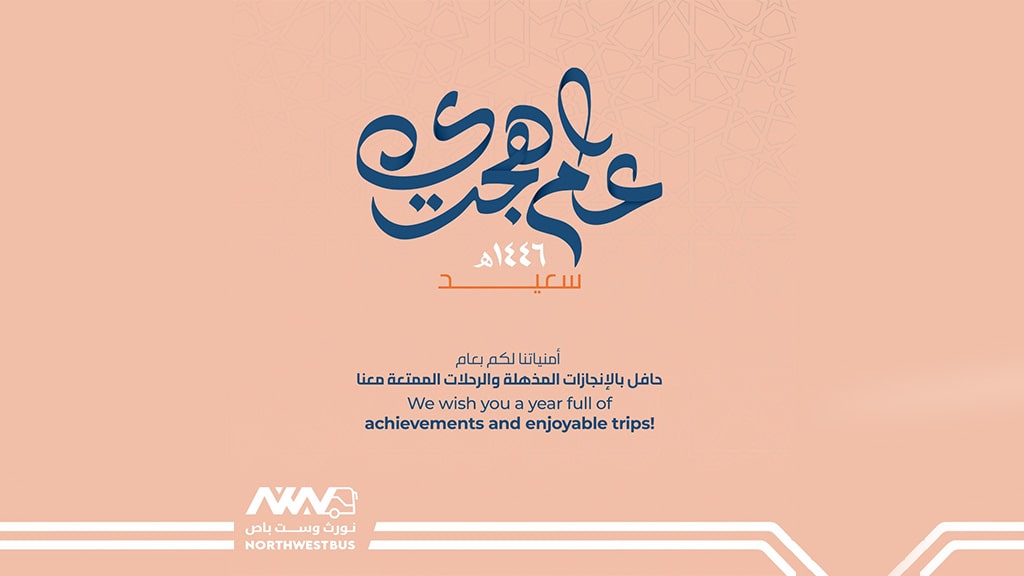Blogs


The Islamic New Year, also referred to as the Hijri New Year signifies the commencement of the Islamic lunar calendar. In contrast to the Gregorian calendar which follows the solar year, the Islamic calendar is lunar, consisting of 12 months in a year of 354 or 355 days. Muharram is the initial month of the Islamic calendar, a sacred month with profound importance in Islamic history.
The Islamic New Year honours the Hijra, Prophet Muhammad’s migration from Mecca to Medina in 622 CE. This pivotal event signifies a significant moment in Islamic history, leading to the formation of the first Muslim community based on Islamic principles. The Hijra is of such importance that it serves as the starting point of the Hijri calendar.
Al-Hijiri Date
The Islamic lunar calendar calculates the Al Hijri date, with the first year being the year of Muhammad’s Hijrah. It commences on the first day of the month of Muharram, which corresponds to July 16, 622 CE in the Julian calendar. Muslims globally rely on the Islamic Calendar, also referred to as the Lunar or Hijri calendar, for scheduling religious events and observances. The Hijri calendar follows a system of 12 lunar months, with each new month commencing upon the sighting of a new moon. The Islamic year 1447 AH aligns with 2025-2026 AD in the Gregorian calendar. This era holds great importance for Muslims globally, symbolising a period of introspection, rejuvenation, and honouring the Prophet’s pivotal journey that shaped the Islamic community. The Hijri calendar, rooted in lunar phases, plays a crucial role in scheduling Islamic festivities and ceremonies, underscoring its significance in Islamic traditions and beliefs.
Al-Hijra is not considered a religious holiday, as it does not involve any religious ceremonies. Rather, it is observed culturally and acknowledged as a public holiday. Al-Hijra is relatively low-key compared to other Muslim holidays. Being recognized as the Islamic New Year, many individuals set resolutions that they aim to uphold throughout the year. Muslims frequently participate in prayer gatherings at the mosque and enjoy quality time with loved ones. Similar to the festivities of New Year’s Day in January, Al-Hijra is a period for reflection, appreciation, and introspection.
The Islamic New Year holds great importance for Muslims globally. It is a time for contemplation, worship, and unity. By delving into the background and importance of the Hijri New Year, Muslims can strengthen their faith and dedication to the principles of Islam. As we embark on the new year, may it usher in tranquillity, prosperity, and a revitalized sense of direction for everyone.
Related Articles

Opening of Two New North West Bus Stop Points in Bir Bin Hermas and Al-Maʿzam
Opening of Two New North West Bus Stop Points in Bir Bin Hermas and Al-Maʿzam Tabuk, 4 November 2025North West Bus has launched two new stop points in...

Northwest Bus celebrates its second anniversary and has surpassed 2,500,000 passengers.
Northwest Bus celebrates its second anniversary and has surpassed 2,500,000 passengers. 15 Oct 2025 We write today about a collective achievement. Two years of organized work. Trips that...

Opening of the “Northwest Bus Model Station” in Tabuk to Enhance Connectivity Across the Northwest and Support Vision 2030 Goals
Opening of the “Northwest Bus Model Station” in Tabuk to Enhance Connectivity Across the Northwest and Support Vision 2030 Goals Tabuk — [September 30, 2025] Northwest Bus announced...